Does arming teachers make Tennessee schools safer? Experts aren't so sure
More questions than answers remain after Tennessee Gov. Bill Lee signed off on a controversial new law allowing public school teachers and staff to carry concealed handguns in K-12 schools if they meet several requirements.
How many districts will allow staff to carry? What risks are involved? What are armed teachers and staff supposed to do in the event of an active shooter? Are the training and background checks required by the law enough? How will it actually work if schools choose to implement a carry policy?
The consensus was clear among three experts The Tennessean spoke with: Arming teachers is a high-risk, complicated idea, and if schools choose to adopt a policy allowing it, they should be extremely cautious in how they proceed.
Their concerns echo those of parents, teachers, students, education leaders, lawmakers and a bipartisan group of gun reform advocates who opposed the bill as it worked its way through the state legislature. It was first introduced just a few months before a shooter left three 9-year-old students and three adult staff members dead at The Covenant School in Nashville last March. Covenant School parents joined the pushback as debate over the bill intensified after the shooting.
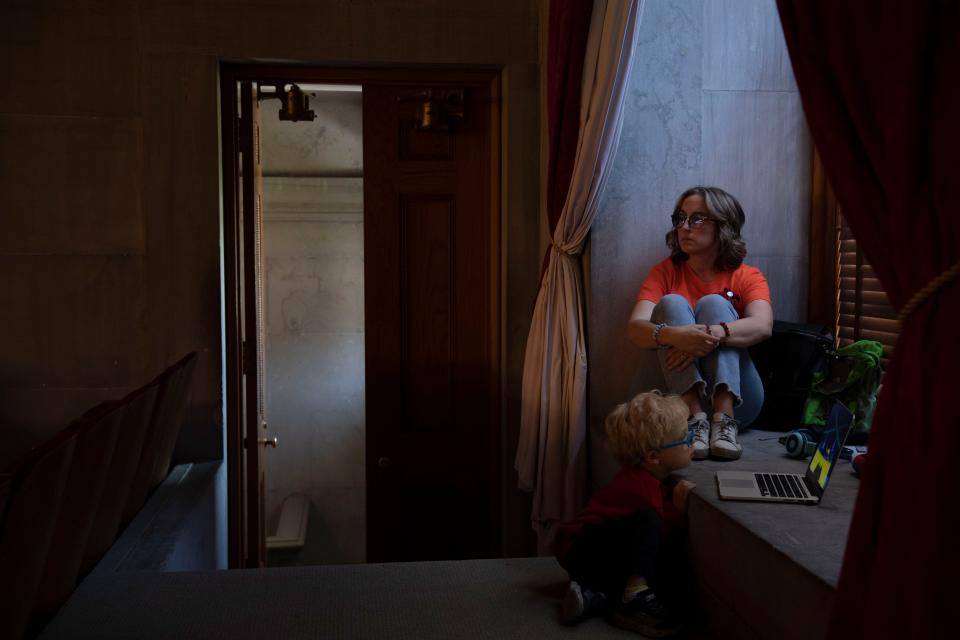
The measure was ultimately deferred, picked back up during this year's session by GOP lawmakers and swiftly passed along party lines, despite vocal protests.
Here's a look at what experts think about the new law and what it could mean if schools implement it.
From August: Tennessee's special session reignited the school safety debate. But what's actually best?
Experts urge caution, ask big questions over arming teachers
Both a school safety expert and a national school resource officer leader said the same thing when it comes to implementing policy that allows armed teachers and staff in schools: "The devil's in the details."
Mo Canady, the executive director for the National Association of School Resource Officers, was a police officer for 25 years before taking on his current role in 2011. Nearly half his time on the force was spent overseeing local SRO programs in Hoover, Alabama, a suburb of Birmingham.
Supporters of the new law in Tennessee often cited a critical shortage of school resource officers or limited police forces that can slow response times, especially in rural communities. That's part of an ongoing police shortage.
"Law enforcement is in a recruiting crisis," Canady said. "There are no easy answers here."
Arming teachers: Where Middle Tennessee districts stand on allowing teachers to carry guns
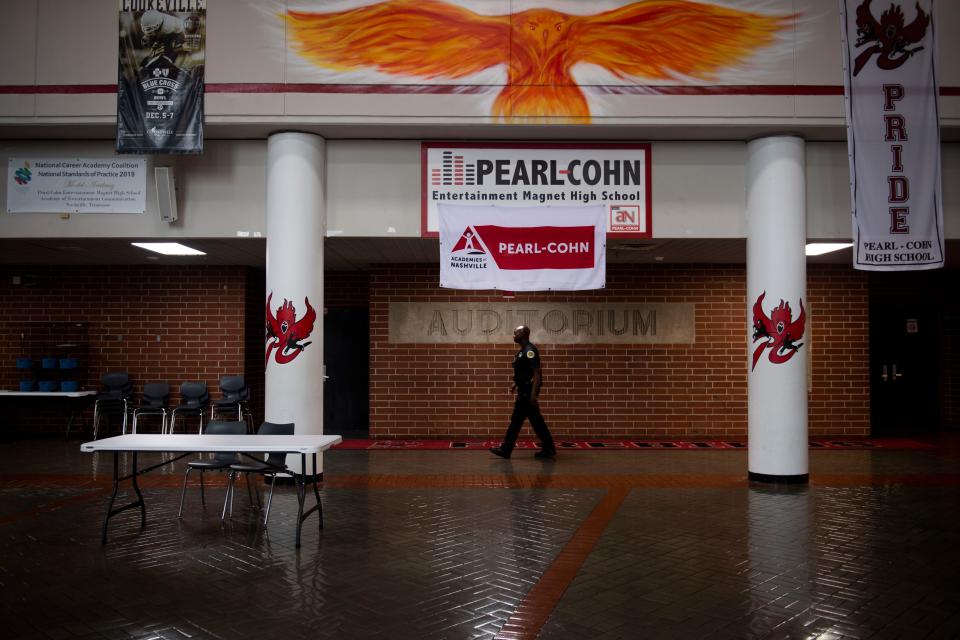
Still, the idea of arming teachers makes him uncomfortable. When asked if he thinks the 40 hours of basic training required under the law is enough for teachers and staff to carry guns in schools, his answer was simple: “Absolutely not.”
For one, he said, it's limited in how it addresses things like active shooters. The basic training his organization offers includes things like adolescent brain development and mental health issues, special needs, human trafficking and behavioral threat assessment, among others.
"It's so much more than just carrying a weapon," Canady said.
National School Safety and Security Services President Ken Trump has long served the public education space. In the past, he oversaw school safety for Cleveland Public Schools. Now a consultant and speaker, Trump voiced concerns similar to Canady's.
"Any proposition to arm teachers and school staff, it's a high-risk, high-liability proposition. Period," Trump said.
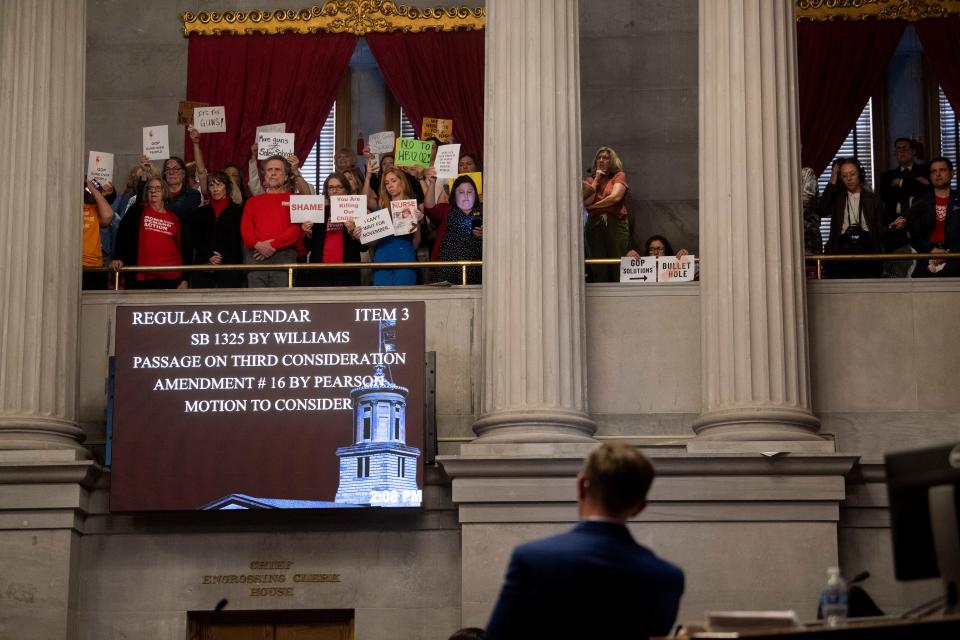
He said there is wide agreement in the school safety and law enforcement community that even officers with hundreds, if not thousands, of hours of experience in policing must undergo even more training to become SROs.
He agreed that 40 hours of training is not enough to place armed, non-law enforcement personnel into schools.
"You also wouldn't want to take a police officer off the street, give them 40 hours of training and have them teach second grade," Trump said.
If and when a school staff member is approved to carry a weapon, Canady said several more questions arise for him.
Where will the gun be throughout the day? How will teachers or staff members conceal it if they have it on their person, especially while interacting with students? Will teachers with guns leave their classrooms if an active shooter enters the building, or stay and protect only their classes? How will law enforcement responding to a school know who is an approved staff member with a gun versus a threat?
Canady also pointed to another grim reality for teachers and staff who carry.
"Many of our school shooters have been students," he said. "Are they mentally prepared to deal with that, to have to take the life of a student?"
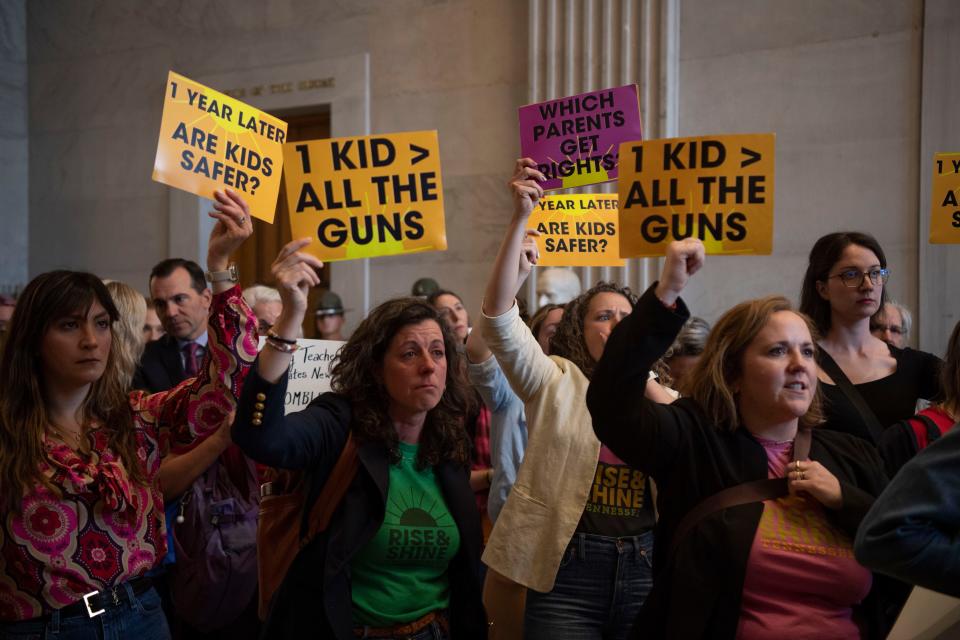
Canady urges caution for those who develop policies for armed staff in schools.
"Think very deeply about how you're going to implement this," Canady said. "You don't want to … unintentionally allow this to become kind of a Wild West situation."
A growing number of Tennessee school districts, including its larger urban districts and some smaller and rural districts, have said they won't allow teachers or staff to carry guns, despite the new law. Others have said they're still discussing the matter with local law enforcement and school leadership.
Columbia professor: 'There's been no real research on this'
Charles Branas, a professor of epidemiology at Columbia University, has spent years studying the effects of gun violence in America, especially when it comes to schools. He's currently part of a study funded by the National Institutes of Health analyzing roughly a decade's worth of mass shootings in schools.
He and his team are speaking with nearly 700 schools across dozens of states that have experienced mass shootings. Roughly half of those schools have experienced shootings themselves. The study will comb through what safety measures the schools had in place before the shootings, including things like metal detectors, school resource officers, anti-violence programs and allowing armed teachers. It also takes state and local gun laws into account.
When it comes to arming teachers, Branas said the vast majority of schools he's spoken to don’t support the idea.
"The ones that have expressed … that they would consider it were very hesitant about it," he said.
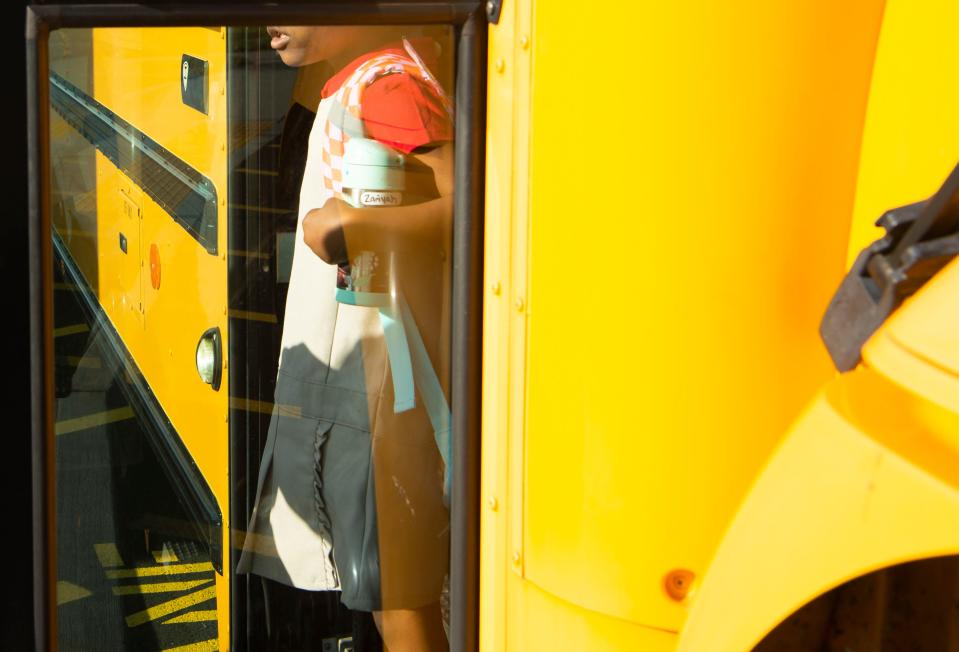
Branas said he and his team are at least a year away from having results from the study. Like Canady and Trump, he also expressed alarm over how many states are pressing forward with laws that would allow armed teachers. Most recently, Iowa adopted an arming teachers law, just days before Tennessee did the same.
"There's been no real research on this and whether it could be effective," he said. "People are proceeding here in the absence of analytic guidance."
Branas has also been part of a study that observes people in immersive shooting simulations. He said civilians who are untrained or minimally trained do very poorly in simulations of crowded situations. While police officers fare better, they still struggle. He said officers with special weapons training do best in the simulations.
All that leaves him uneasy about schools arming teachers and staff. While specific research on arming teachers is still lacking, Branas said he's open to what he and others will find as they forge ahead.
"It may show that there's benefit," he said. "But right now, we don't know that."
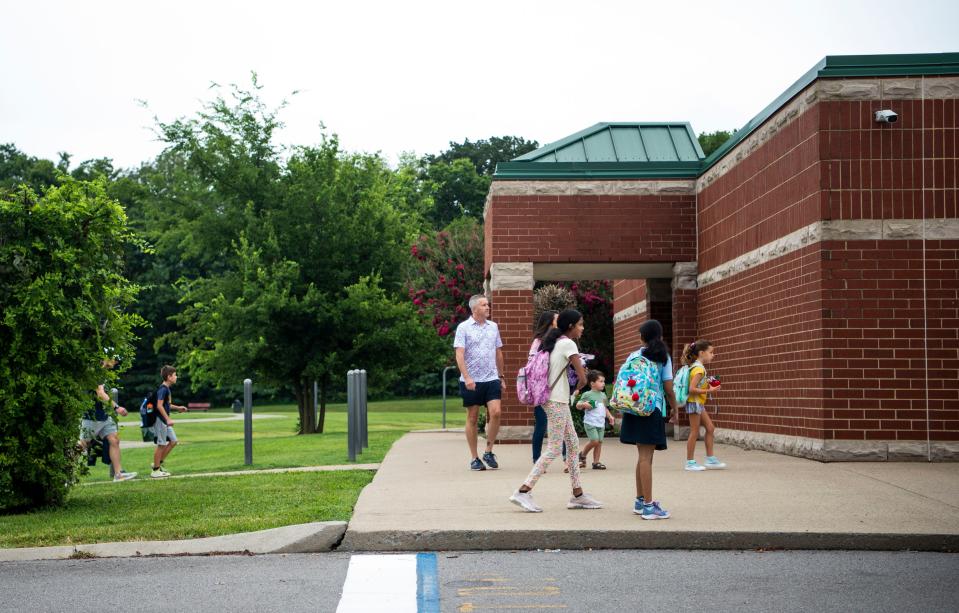
A glance at Tennessee's law on arming teachers
The newly-passed law in Tennessee maps out several requirements. It requires teachers and staff who wish to carry concealed handguns on campus to maintain a valid handgun carry permit, undergo background checks, get a psychiatric or psychological certification and complete 40 hours of basic training in school policing. They must also get sign-off from their district director, school principal and the leader of their local law enforcement agency. Additionally, they must complete at least 40 hours of training on school policing annually.
Districts and local law enforcement must work together to develop and implement a carry policy. The law also says districts and law enforcement will not disclose who is carrying and cannot be sued for how those staff members do — or do not — use the gun they carry. The law bars teachers and staff from carrying guns into auditoriums and stadiums during school events, certain events like disciplinary or tenure meetings, clinics and hospitals, and areas that are posted as prohibiting firearms.
This article originally appeared on Nashville Tennessean: Arming Tennessee teachers: Experts, others question new gun law
